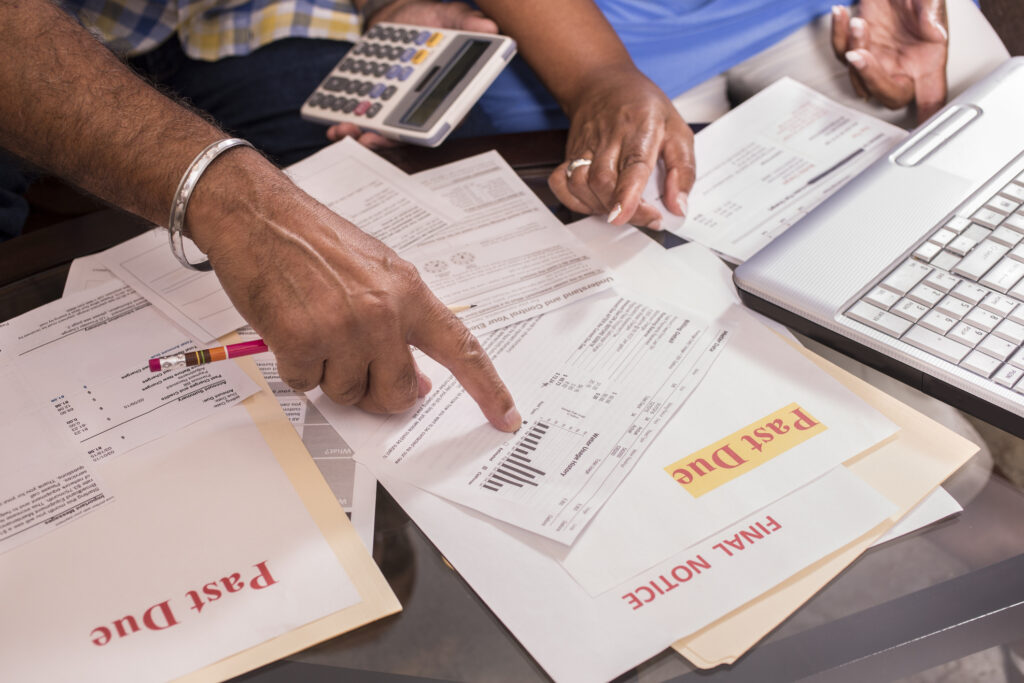 Sometimes a friend or relative with poor credit may ask you to co-sign on their car loan. It’s important to know that co-signers take on financial responsibilities for the duration of the loan. Co-signing does not just mean that you are a character reference for the borrower. Before you sign, keep the following five points in mind.
Sometimes a friend or relative with poor credit may ask you to co-sign on their car loan. It’s important to know that co-signers take on financial responsibilities for the duration of the loan. Co-signing does not just mean that you are a character reference for the borrower. Before you sign, keep the following five points in mind.
1) Get Familiar with the Account
Before you sign, make sure you know what you are agreeing to. Know the purpose of the account, the type of account, the terms, and why your friend or relative needs a co-signer.
If you co-sign, establish access to the account so that you can verify that payments are made on time and as agreed each month.
2) Understand Your Legal and Financial Obligations
Read and understand the credit contract. Be aware that a lender may be able to collect from you even when there is collateral. In the case of a car loan, for example, the lender might demand payment from you instead of repossessing the car. Sometimes, even if the car is repossessed, its value may not be sufficient to pay off the loan.
Understand that if the primary borrower defaults and has missed a payment, the lender can demand payment from you. As well, the lender, or a debt collector, may try to collect from you. The debt may include the principal amount, plus interest, late fees or collection costs.
3) Monitor the Payment History
Get access to monthly statements, either online or through customer service, so that you can see when payments were applied to the account. Make certain the lender applied the payment properly, with specific amounts to principal and interest.
Don’t wait until a collector calls saying payments have not been made. By that time, your credit may already have been negatively impacted. Remember, one missed or late payment could mean a black mark on your credit.
4) Check Your Credit Reports
Check your credit reports regularly with Transunion, Experian, and Equifax to see how this loan is being reported. If there are late payments, address the problem with the co-borrower. If the reporting is inaccurate, send written disputes to the credit bureaus.
5) Prepare for the Worst
Create an account where you make the monthly payment. If the co-borrower misses or stops making payments on the loan, you’ll have funds readily available to cover the missed payment and keep your good credit name.
Seek Legal Advice
 Flitter Milz is a Consumer Protection law firm that represents consumers involved with matters concerning wrongful vehicle repossession and credit reporting errors. Contact us for a no cost consultation.
Flitter Milz is a Consumer Protection law firm that represents consumers involved with matters concerning wrongful vehicle repossession and credit reporting errors. Contact us for a no cost consultation.

 An unexpected occurrence like illness or loss of employment can leave you struggling to pay bills on time. If you are unable to pay your car loan on time, the lender may choose to repossess your vehicle.
An unexpected occurrence like illness or loss of employment can leave you struggling to pay bills on time. If you are unable to pay your car loan on time, the lender may choose to repossess your vehicle.  Many times a job loss, illness, death in the family or divorce cause a hardship making it difficult to keep up with financial obligations. When a borrower defaults on auto loan terms, such as late or partial payments, a lapse in insurance coverage, or death of borrower, the lender may choose to repossess the vehicle.
Many times a job loss, illness, death in the family or divorce cause a hardship making it difficult to keep up with financial obligations. When a borrower defaults on auto loan terms, such as late or partial payments, a lapse in insurance coverage, or death of borrower, the lender may choose to repossess the vehicle. Any number of life situations may impact your ability to keep up with car payments. Hours may have been reduced at work. A family member may be seriously ill. You may be going through a divorce. If you believe your vehicle may be at risk of repossession, follow these six simple steps.
Any number of life situations may impact your ability to keep up with car payments. Hours may have been reduced at work. A family member may be seriously ill. You may be going through a divorce. If you believe your vehicle may be at risk of repossession, follow these six simple steps. Co-signers lend their names and good credit histories to the primary borrower, usually when the other borrower cannot obtain credit on his or her own. For example, a parent may co-sign for a child who does not yet have a credit history. Or, someone may be asked to co-sign by a friend or relative whose credit is tarnished, has negative marks in their credit history, or a low
Co-signers lend their names and good credit histories to the primary borrower, usually when the other borrower cannot obtain credit on his or her own. For example, a parent may co-sign for a child who does not yet have a credit history. Or, someone may be asked to co-sign by a friend or relative whose credit is tarnished, has negative marks in their credit history, or a low  Flitter Milz is a nationally recognized consumer protection law firm representing people in matters against lenders, debt collectors and the credit bureaus. Whether you or the co-borrower has fallen behind on payments or not,
Flitter Milz is a nationally recognized consumer protection law firm representing people in matters against lenders, debt collectors and the credit bureaus. Whether you or the co-borrower has fallen behind on payments or not, 





